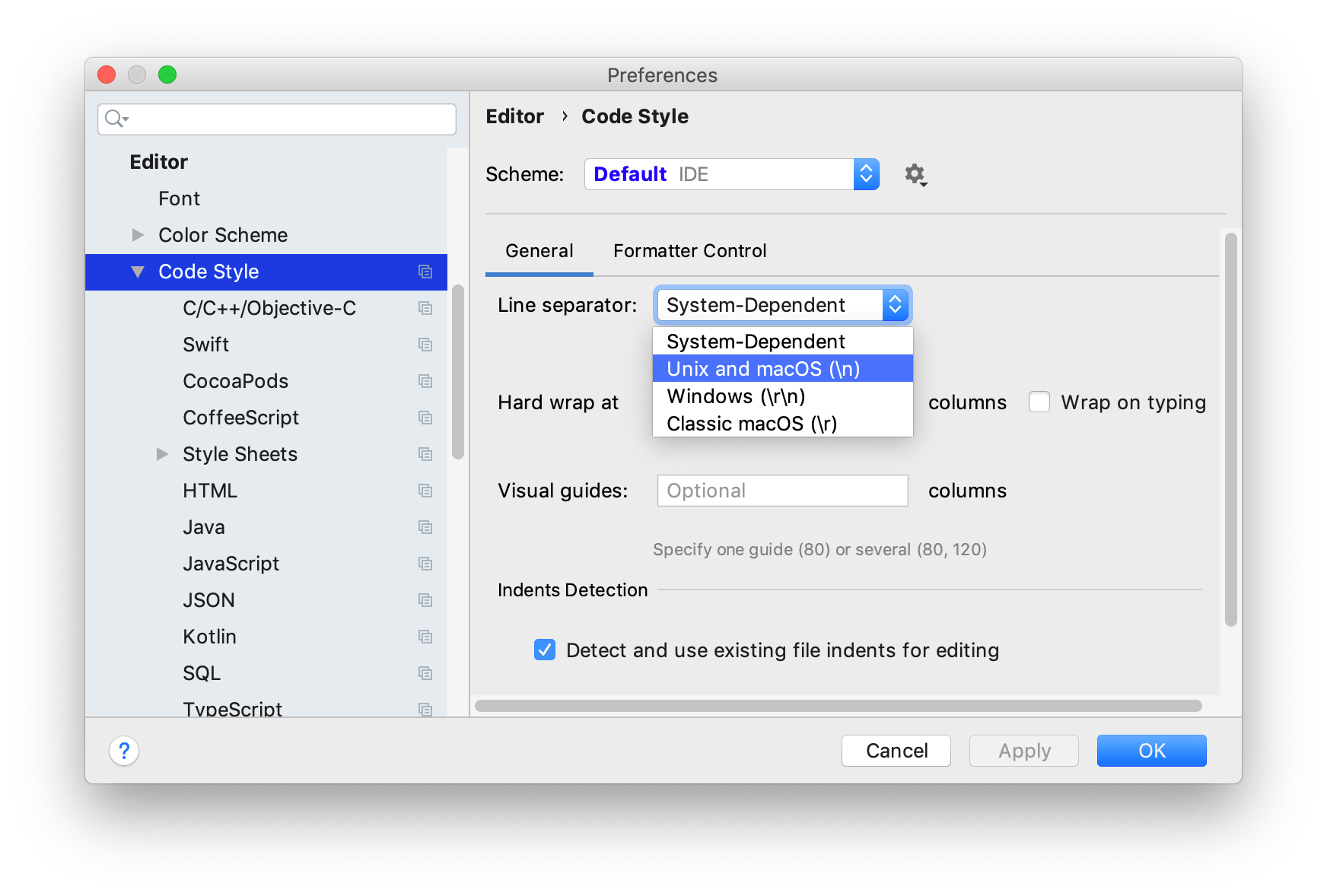

- #Appcode ignore file format how to
- #Appcode ignore file format code
- #Appcode ignore file format password
We want FastAPI to keep filtering the data using the response model. We wanted to annotate the function with one type but return something that includes more data. Let's continue from the previous example.
#Appcode ignore file format how to
but continue reading below to see how to overcome that. That's why in this example we have to declare it in the response_model parameter. In this case, because the two models are different, if we annotated the function return type as UserOut, the editor and tools would complain that we are returning an invalid type, as those are different classes. So, FastAPI will take care of filtering out all the data that is not declared in the output model (using Pydantic). post ( "/user/", response_model = UserOut ) async def create_user ( user : UserIn ) -> Any : return user
#Appcode ignore file format password
Here we are declaring a UserIn model, it will contain a plaintext password:įrom typing import Any from fastapi import FastAPI from pydantic import BaseModel, EmailStr app = FastAPI () class UserIn ( BaseModel ): username : str password : str email : EmailStr full_name : str | None = None class UserOut ( BaseModel ): username : str email : EmailStr full_name : str | None = None. You can also use response_model=None to disable creating a response model for that path operation, you might need to do it if you are adding type annotations for things that are not valid Pydantic fields, you will see an example of that in one of the sections below. And still you can have FastAPI do the data validation, documentation, etc. This way you can add correct type annotations to your functions even when you are returning a type different than the response model, to be used by the editor and tools like mypy. If you declare both a return type and a response_model, the response_model will take priority and be used by FastAPI. But FastAPI will still do the data documentation, validation, filtering, etc. That way you tell the editor that you are intentionally returning anything. If you have strict type checks in your editor, mypy, etc, you can declare the function return type as Any. You can use the response_model parameter in any of the path operations: In those cases, you can use the path operation decorator parameter response_model instead of the return type.

a dict) that is different from what you declared (e.g. If you added the return type annotation, tools and editors would complain with a (correct) error telling you that your function is returning a type (e.g. This way the Pydantic model would do all the data documentation, validation, etc. There are some cases where you need or want to return some data that is not exactly what the type declares.įor example, you could want to return a dictionary or a database object, but declare it as a Pydantic model.
#Appcode ignore file format code
It will also be used by automatic client code generation tools.This will be used by the automatic docs.Add a JSON Schema for the response, in the OpenAPI path operation.This way you and your clients can be certain that they will receive the data and the data shape expected. you are missing a field), it means that your app code is broken, not returning what it should, and it will return a server error instead of returning incorrect data. get ( "/items/" ) async def read_items () -> list : return post ( "/items/" ) async def create_item ( item : Item ) -> Item : return item. OAuth2 with Password (and hashing), Bearer with JWT tokensĬustom Response - HTML, Stream, File, othersĪlternatives, Inspiration and Comparisonsįrom fastapi import FastAPI from pydantic import BaseModel app = FastAPI () class Item ( BaseModel ): name : str description : str | None = None price : float tax : float | None = None tags : list =. Response_model_include and response_model_excludeĭependencies in path operation decorators

Use the response_model_exclude_unset parameterĭata with values for fields with defaultsĭata with the same values as the defaults


 0 kommentar(er)
0 kommentar(er)
